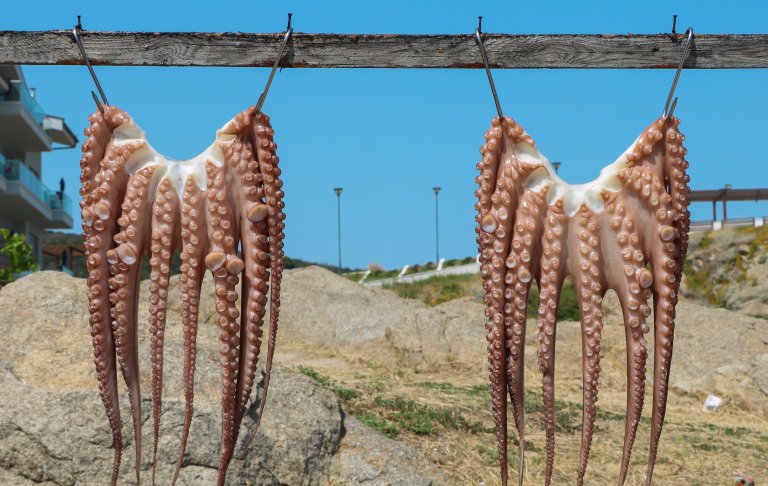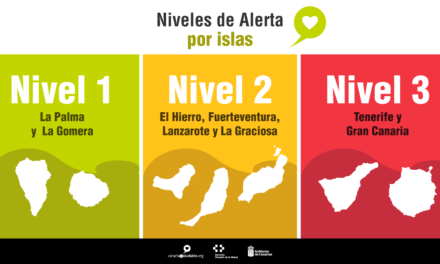The proposal by Spanish multinational Nueva Pescanova to create the world’s first commercial octopus farm on Gran Canaria has generated a great deal of controversy. The company aims to produce one million octopuses a year for consumption worldwide, three times the number currently caught in the wild by Spanish fisheries. However, the project has been condemned by many scientists who regard the proposed method of killing the octopuses as “cruel”. Confidential documents obtained by the BBC reveal that the creatures would be killed using water as cold as -3°C, which many experts believe would result in a slow and stressful death.
The company’s plans, as revealed in the leaked documents, involve keeping the octopuses, which in the wild are solitary creatures accustomed to darkness, in tanks with other animals of the same species under constant light. Between 10 and 15 octopuses would live in each cubic metre of tank, according to the environmental group Compassion in World Farming (CiWF).
In February 2022, Iris Sánchez, spokesperson for the animal rights party Pacma in the province of Las Palmas, argued that octopuses “are sentient, intelligent, highly creative and solitary animals” and that they would be “condemned to live in a confined and limited space with other individuals, with all the psychological and physical damage that this can cause”.
Currently, there are no animal welfare rules to protect them, as octopuses have never been commercially farmed before. However, studies have shown that the ice slurry method of slaughter used in this case causes slow and stressful deaths in fish. The World Organisation for Animal Health states that such practices “result in poor fish welfare”, and the Aquaculture Stewardship Council (ASC), the main certification scheme for farmed seafood products, calls for their prohibition unless fish are stunned beforehand. As a result, some supermarkets in Europe have stopped selling fish that has been killed using ice.
Professor Peter Tse, a neurologist at Dartmouth College in the US, told the BBC that “killing them with ice would be a slow death” and that “it would be very cruel and should not be allowed”. He added that octopuses are “as intelligent as cats” and suggested that a more humane way to kill them would be as many fishermen do, by hitting them on the head.
Nueva Pescanova proposes to feed farm animals with dry, industrially produced food made from fish by-products and waste. In addition, the tanks would be filled with seawater channelled from an adjacent bay. They would be of different sizes for different stages of octopus life, with salinity and temperature tightly controlled.
In a statement to the BBC, the company said: “The welfare levels required for octopus production or any other animal in our farming operations guarantee the proper handling of the animals. Sacrifice, likewise, involves proper handling that avoids any pain or suffering to the animal.” However, they themselves estimate that in the tanks there will be “a mortality rate of 10-15%”.
There are reports of octopus farming in various parts of the world, but these are generally small-scale operations. There are also concerns that intensive farming could lead to the spread of disease among octopuses, which are highly sensitive creatures. In addition, the impact on the environment of discharging waste from such farms is uncertain, as is the potential impact on wild populations of octopuses.
Keeping octopuses together in captivity can have negative consequences. Octopuses are typically solitary creatures in the wild, and keeping them in close quarters with other octopuses can lead to aggression and stress.
Octopuses are highly intelligent animals and can be territorial. When multiple octopuses are housed together, they may fight over resources such as food, shelter, and mates. This can lead to injuries and even death. In addition, the stress of living in close proximity to other octopuses can have a negative impact on their health and wellbeing.
Furthermore, octopuses have highly individual personalities and preferences, and keeping them together can restrict their ability to express their natural behaviours and instincts. In captivity, they may also be deprived of the complex and diverse environments they would experience in the wild, leading to boredom and frustration.
It is generally recommended to keep octopuses in individual tanks or enclosures to ensure their physical and psychological wellbeing.
 There is a growing body of evidence that suggests octopuses are highly intelligent creatures. Some examples of their intelligence include:
There is a growing body of evidence that suggests octopuses are highly intelligent creatures. Some examples of their intelligence include:
- Problem-solving abilities: Octopuses have been observed solving complex puzzles, such as opening jars to get food. They have even been known to unscrew jar lids and navigate mazes.
- Tool use: Octopuses have been observed using coconut shells and other objects as tools, such as using shells for shelter or to create a mobile hiding place.
- Mimicry: Octopuses are skilled mimics and can change their skin colour and texture to blend in with their surroundings or mimic other animals. Some have even been known to mimic human faces.
- Memory: Octopuses have been shown to have excellent memories, including the ability to recognise individual humans and remember interactions with them.
- Playfulness: Octopuses have been observed playing with objects and engaging in other playful behaviours, suggesting that they may have a sense of humour or at least a capacity for joy.
Overall, these behaviours suggest that octopuses are highly intelligent animals that are capable of adapting to their environment and solving complex problems. They are fantastic escape artists, regardless of their size, able to fit through holes as small as an inch in diameter.
What is more, octopuses have been known to eat each other, especially when they are kept together in captivity under stressful conditions. Cannibalism among octopuses can occur due to various reasons. In some cases, larger or more dominant octopuses may even prey upon smaller or weaker ones. However, it’s important to note that cannibalism is not a natural behaviour for octopuses and is typically only observed in captivity or under unusual circumstances in the wild.
No matter what your opinion of eating such creatures, it seems that most scientists question the ethics of keeping such a complex and intelligent species in cramped captivity, simply for food or profit.
More than 80,000 people have signed a PETA petition against the facility











